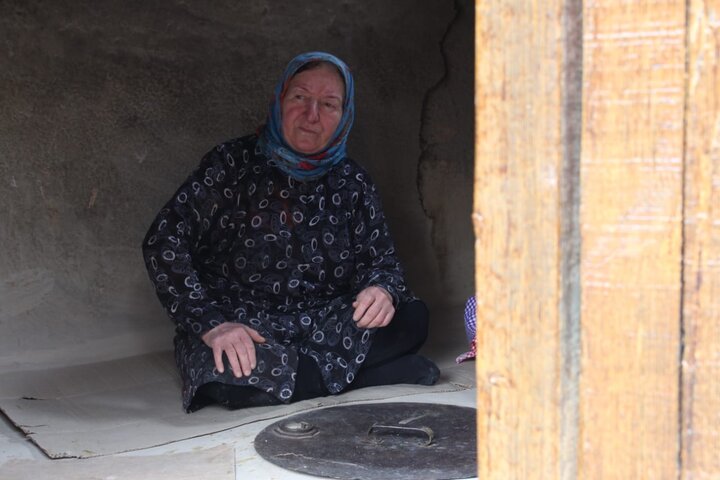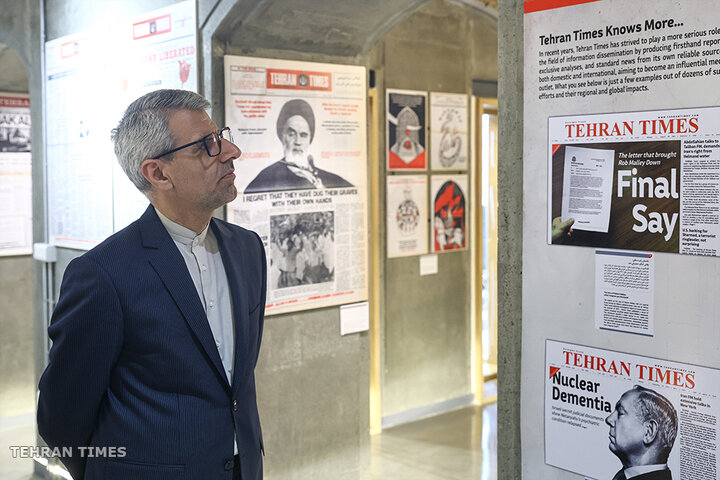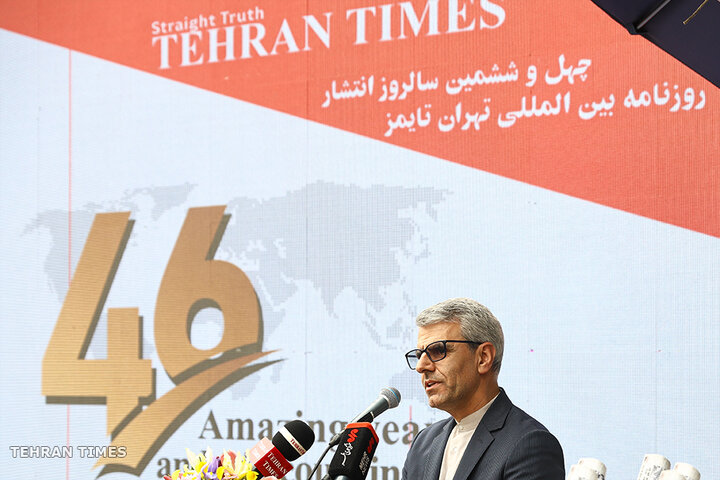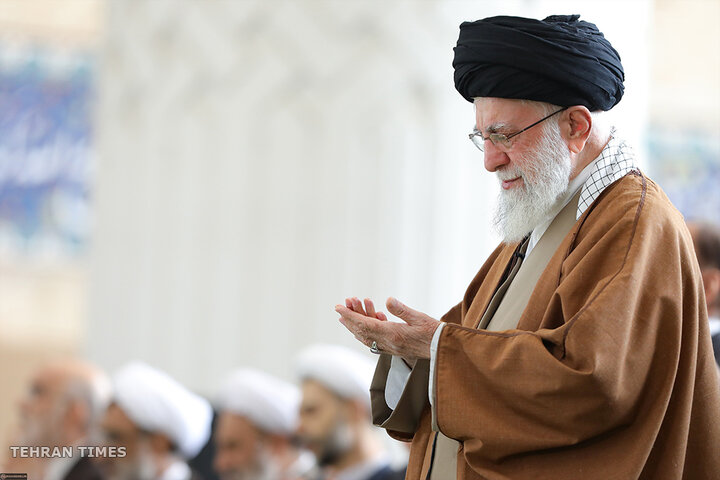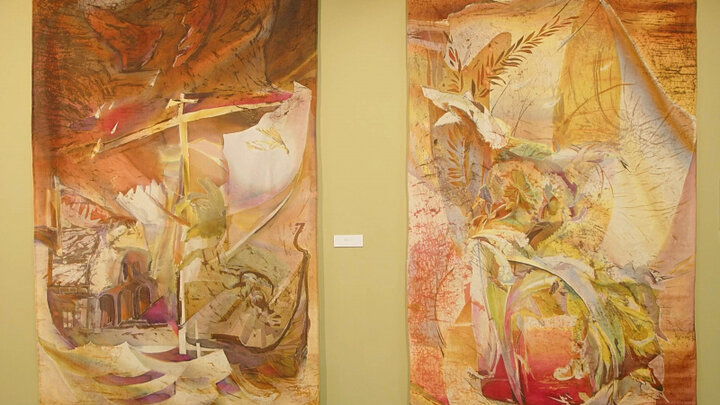-
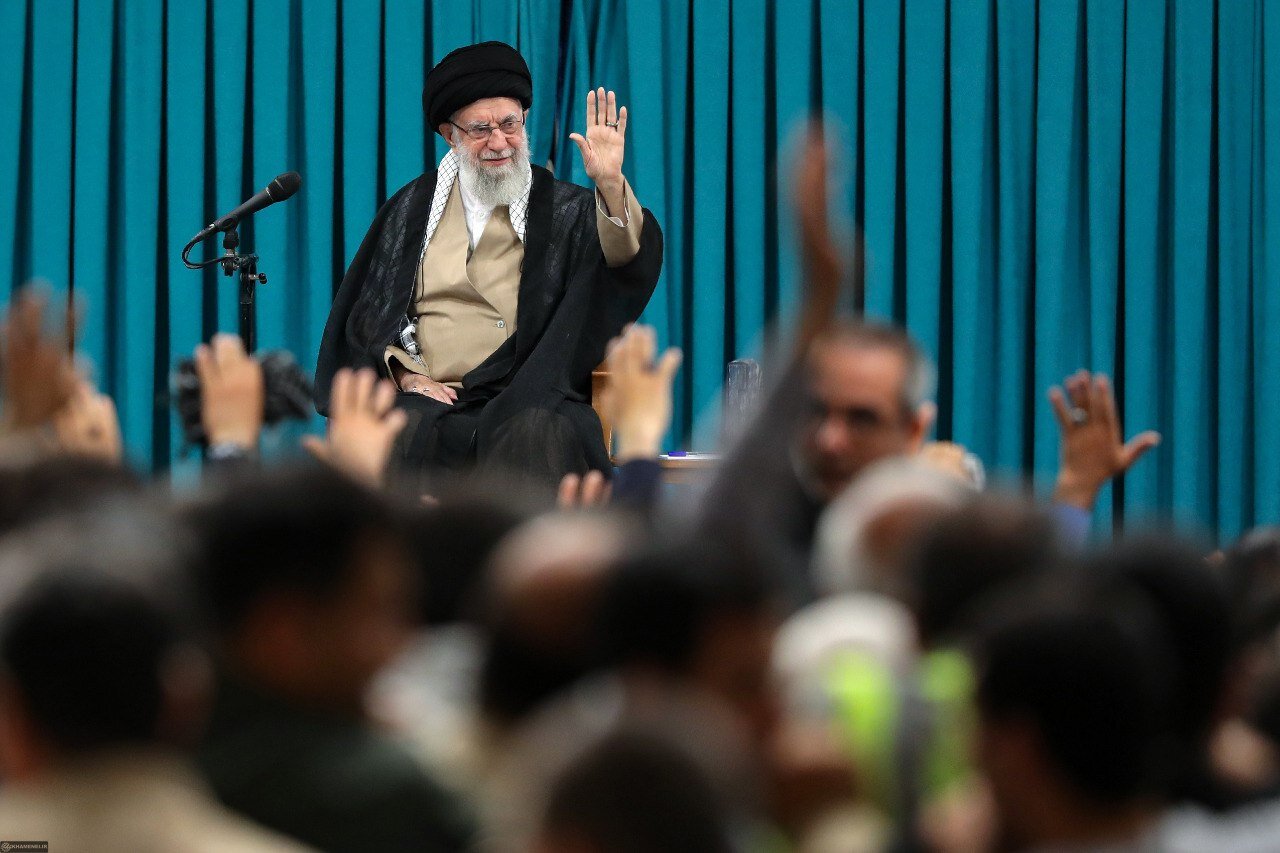 2025-05-10 22:45
2025-05-10 22:45
Minds must not be diverted from Palestine: Leader
TEHRAN – On the occasion of National Workers’ Week in Iran, Ayatollah Seyyed Ali Khamenei, the Leader of the Islamic Revolution, met with a group of Iranian laborers on May 10, 2025, in the Imam Khomeini Hussainiyah.
-

By Mona Hojat Ansari
Witkoff dims prospects for nuclear agreement as he demands concessions on Iran’s red lines
TEHRAN – President Donald Trump’s special West Asia envoy Steve Witkoff dampened hopes for a potential breakthrough in indirect nuclear talks between Tehran and Washington ahead of a fourth round of the discussions, as he told a U.S. news outlet that Iran should “dismantle” its uranium enrichment facilities and ship the material “far away”.
-

By Sondoss Al Asaad
Why is Nasrallah’s mausoleum defamed!?
BEIRUT — A week has passed since Lebanon’s Al Jadeed channel aired an intelligence report aimed at defaming the mausoleum of Hezbollah’s martyr Secretary-General Sayyed Hassan Nasrallah, without the Lebanese government lifting a finger at this seditious media outlet.
-

By Wesam Bahrani
Yemen to enforce Israeli airspace ban
TEHRAN – Yemeni forces launch operations to block commercial air travel in Israeli skies in solidarity with Gaza.
-

By Sahar Dadjoo
Trump’s looming Riyadh visit and regional power dynamics
TEHRAN- President Donald Trump is embarking on his first international trip of his second term, returning to Saudi Arabia—a symbolic echo of his 2017 debut on the world stage. The visit, however, unfolded against a backdrop of heightened regional tensions, including the ongoing Gaza conflict, the uphill Iran nuclear negotiations, and shifting alliances.
-

By Mohammad Khatibi
A response to claims of ‘imminent collapse’ in Iran
TEHRAN – Daniel M. Rosen, in his recent article for the Jpost, argues that Iran is on the brink of collapse, citing economic hardships posed by U.S. sanctions, evolving situation in the West Asia region, and what he calls internal discontent. However, predicting the Iranian government’s imminent downfall overlooks historical resilience, strategic recalibrations, and Tehran’s evolving regional posture.
Politics
-
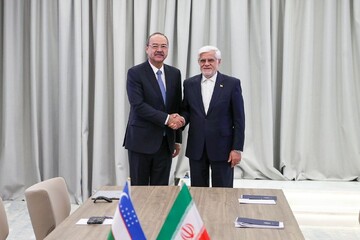
Tehran prepares to host Uzbek PM for talks on expanding economic, political ties
TEHRAN – Uzbekistan’s Prime Minister Abdulla Aripov is set to arrive in Tehran on Sunday, leading a high-level delegation at the invitation of Iran’s Vice President Mohammad-Reza Aref.
-
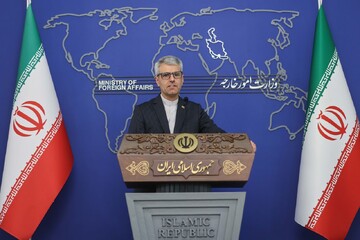
Iran welcomes India-Pakistan ceasefire, urges ‘lasting stability’ after recent tensions
TEHRAN – Iran has welcomed the ceasefire agreement between India and Pakistan, with Foreign Ministry Spokesperson Esmail Baqaei applauding the decision as a demonstration of "responsible and wise statesmanship" by both nations.
-

Iran condemns Stockholm embassy attack, demands Sweden ensure diplomatic security
TEHRAN – In a phone call on Friday, Iranian Foreign Minister Abbas Araghchi strongly condemned the recent arson attack targeting Iran’s embassy in Stockholm, urging Swedish authorities to take “decisive measures” against those responsible.
Sports
-

Alexis Guendouz: I'm pleasantly surprised by Iran
TEHRAN — Trained at Saint-Étienne, then moved to Algeria, and now at 29 years old, Alexis Guendouz is in Iran, defending the colors of Persepolis in Tehran.
-

Iran win gold in kayak double 500m in Asian championships
TEHRAN – Iran won a gold and a bronze medal in the final day of the 2025 Asian Canoe Confederation Canoe Sprint Asian Championships on Saturday.
-

Esteghlal's crucial role in Persepolis and Sepahan's ACL Elite spot battle
TEHRAN - As the Iran Pro League draws to a close, the fierce rivalry between Tehran giants Persepolis and Isfahan's Sepahan has taken an intriguing twist. With the league title already secured, the focus now shifts to the coveted second-place finish, which guarantees a spot in either the AFC Champions League Elite or the second-tier AFC Champions League.
Culture
-

Imam Reza festival concludes with honors for distinguished cultural figures
MASHHAD- The 21st Imam Reza (AS) International Festival concluded with a ceremony in Mashhad on Friday night, paying tribute to twelve distinguished individuals who have dedicated their lives to spreading the teachings and culture of Imam Reza (AS), the eighth Shia Imam.
-
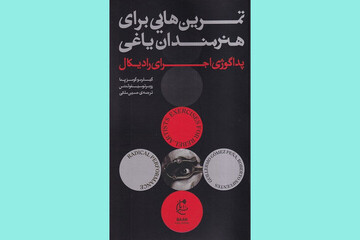
“Exercises for Rebel Artists” published in Persian
TEHRAN-The Persian translation of the book “Exercises for Rebel Artists: Radical Performance Pedagogy” written by Guillermo Gomez Pena and Roberto Sifuentes has been released in the bookstores across Iran.
-
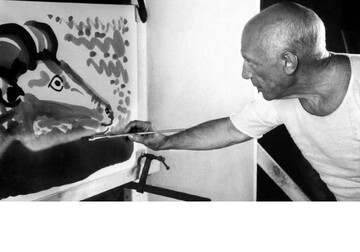
TMoCA to screen documentary on Picasso
TEHRAN-The 1956 French documentary film about the renowned Spanish painter Pablo Picasso titled “The Mystery of Picasso” directed by Henri-Georges Clouzot will be shown at the Tehran Museum of Contemporary Art (TMoCA) in Tehran on Sunday.
Economy
-

Iran restarts Caspian Sea drilling after 3-decade hiatus
TEHRAN - Iran’s Oil Minister has ordered the resumption of exploratory drilling in the shallow waters of the Caspian Sea, ending a 30-year pause in operations.
-
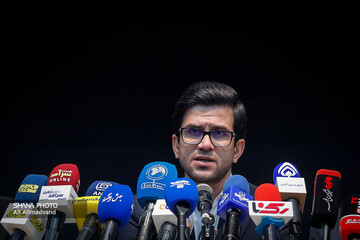
Annual liquid fuel supply to power plants rise 40%
TEHRAN – Iran delivered 21.8 billion liters of liquid fuel to power plants in the previous Iranian year 1403 (ended in late March), marking a 40 percent increase compared to the previous year, a senior oil official said on Saturday.
-
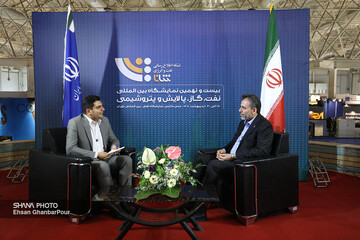
Iran to boost South Pars daily gas output by up to 15 mcm this winter
TEHRAN – Iran plans to increase daily gas production from the South Pars Gas Complex by 10 to 15 million cubic meters (mcm) this winter as part of an early overhaul strategy to prepare for rising seasonal demand, the company’s head said on Saturday.
Society
-

IRCS, UNICEF host workshop on early childhood education in emergencies
TEHRAN – Recognizing the vital role of early learning, especially in times of crisis, the Iranian Red Crescent Society (IRCS) and the United Nations Children’s Fund (UNICEF) have held a national training workshop to ensure children are not left behind, even in emergencies.
-
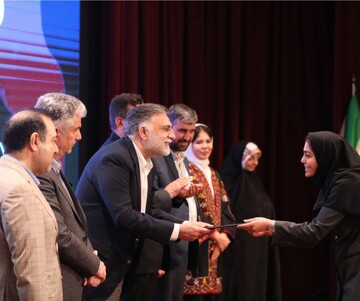
Midwives cornerstone of health care system: WHO rep
TEHRAN – World Health Organization (WHO) Representative Syed Jaffar Hussain has highlighted midwives’ commitment to providing compassionate and skillful care as a cornerstone of the health care system.
-

Cheetahs running towards survival or extinction?
TEHRAN – With an estimated number of less than 30 Asiatic cheetahs remaining in Iran, the head of the Department of Environment (DOE), Shina Ansari, has expressed hope yet worry about the animal’s survival in the country, being pushed to the brink of extinction.
Tourism
-

A monument of engineering and history, Veresk turns 89
TEHRAN - Veresk Bridge, one of Iran’s most iconic engineering feats of the 20th century and a vital link in the Trans-Iranian Railway, has reached its 89th anniversary.
-
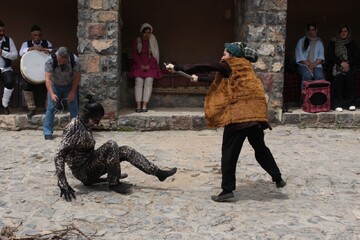
Iran’s Kandelous turns folk tale into a tourism asset
KANDELOUS (Mazandaran province) - The bizarre tale of “Mina and the Leopard” is a cherished oral legend from the village of Kandelous, nestled in Iran’s northern Mazandaran province.
-

Paleolithic evidence discovered on Iran’s Makran coast
TEHRAN - A team of archaeologists, led by Dr. Morteza Hessari, has succeeded in discovering stone artifacts from the Paleolithic era on the Makran coast in Sistan-Baluchestan province.
International
-

Why is Nasrallah’s mausoleum defamed!?
BEIRUT — A week has passed since Lebanon’s Al Jadeed channel aired an intelligence report aimed at defaming the mausoleum of Hezbollah’s martyr Secretary-General Sayyed Hassan Nasrallah, without the Lebanese government lifting a finger at this seditious media outlet.
-

Yemen to enforce Israeli airspace ban
TEHRAN – Yemeni forces launch operations to block commercial air travel in Israeli skies in solidarity with Gaza.
-

Trump’s looming Riyadh visit and regional power dynamics
TEHRAN- President Donald Trump is embarking on his first international trip of his second term, returning to Saudi Arabia—a symbolic echo of his 2017 debut on the world stage. The visit, however, unfolded against a backdrop of heightened regional tensions, including the ongoing Gaza conflict, the uphill Iran nuclear negotiations, and shifting alliances.
Most Viewed
-
Iran, India reaffirm strategic ties at high-level talks in New Delhi
-
Iran equips all fighter jets with indigenous long-range missiles, announces Air Force commander
-
IRGC unveils first underground drone base, publishes surveillance footage of US Navy
-
Persian Gulf: Our waters, our lands
-
Divisions emerge between Israel and US over Gaza and Yemen
-
‘Enrichment is our right,’ Iran’s academics rally behind nuclear negotiators
-
‘Talks with US unpredictable,’ says security chief, as Israel ramps up efforts to derail diplomacy
-
Persian Gulf is Iran's red line
-
Lessons Lebanon can learn from what is happening in Syria
-
Hamas ambushes occupation forces
-
Preserving the past, building the future: Kandelous and the path to sustainable tourism
-
Narrative warfare: How Trump uses preemptive optimism to pressure Iran
-
Witkoff dims prospects for nuclear agreement as he demands concessions on Iran’s red lines
-
A response to claims of ‘imminent collapse’ in Iran
-
Iran expands air navigation co-op with Iraq, UAE at regional aviation summit





